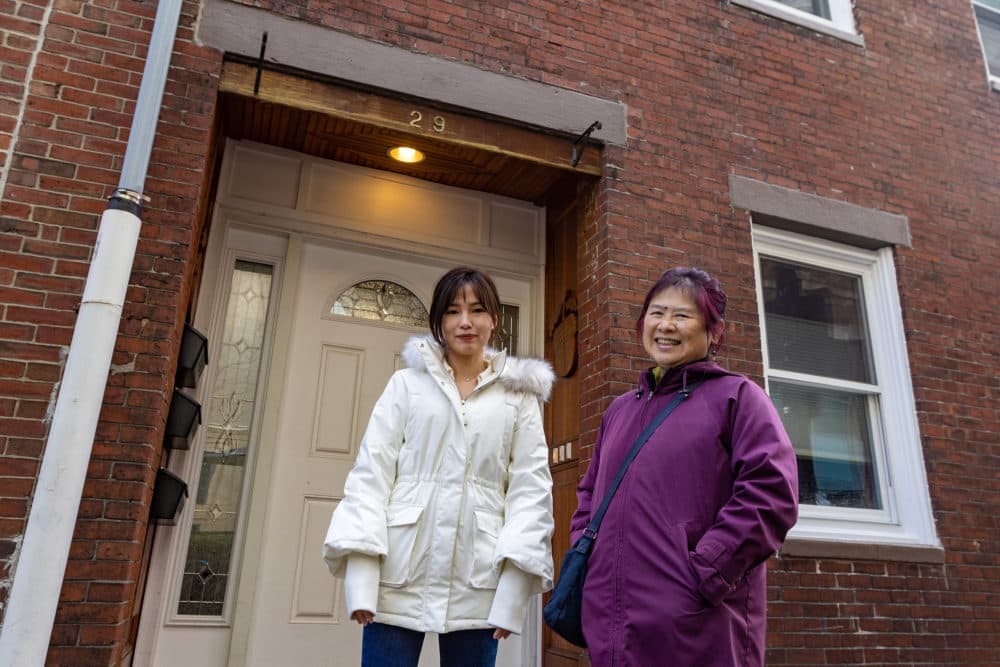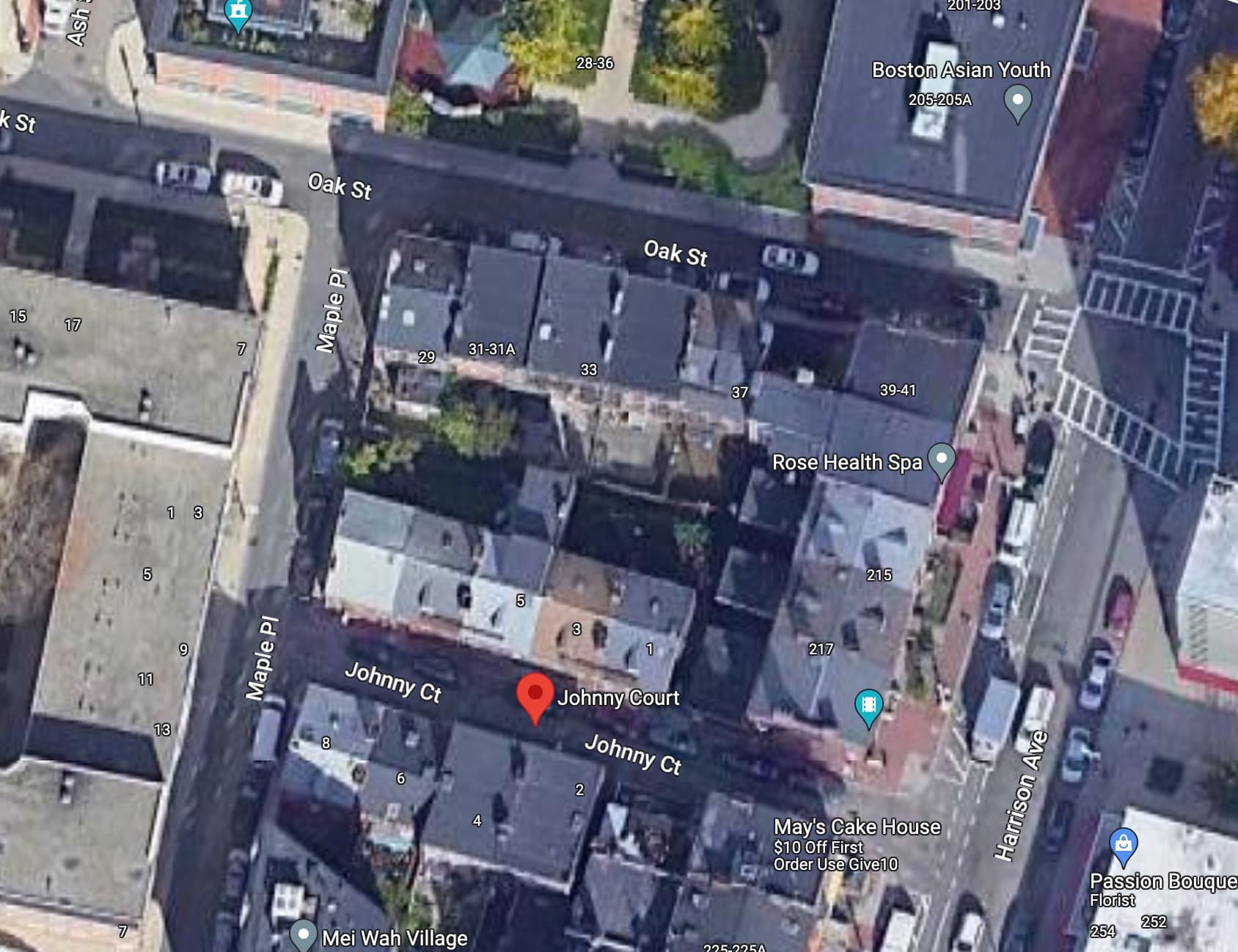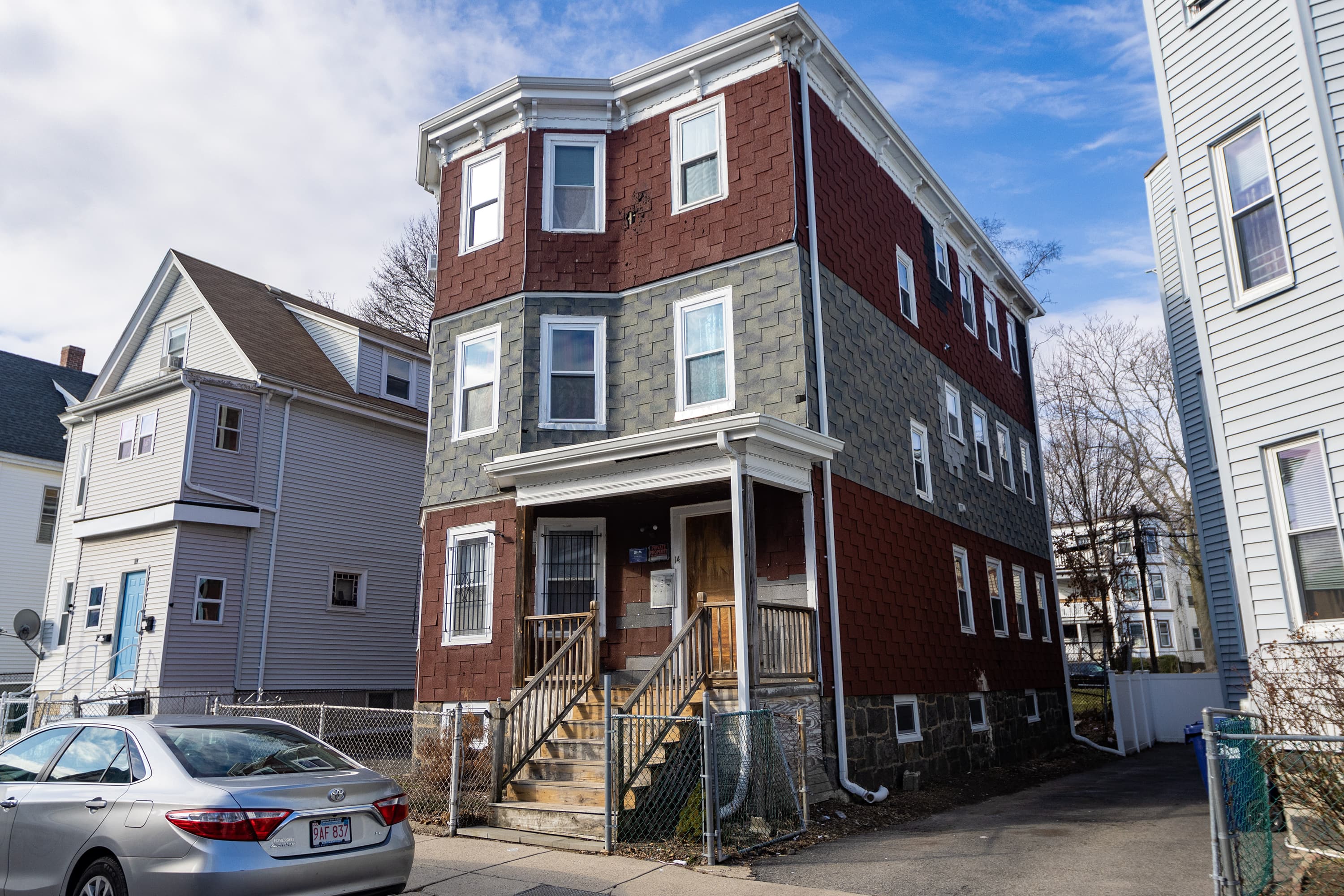Advertisement
Nonprofit buys Chinatown homes to keep them affordable — and preserve history

There's an almost hidden part of downtown Boston, where two small city blocks are crammed full of row houses built well over a century ago. The neighborhood is reminiscent of a bygone time when waves of new immigrants settled the area — first Syrian, Jewish and Irish families, and later Chinese workers.
"Back in the day, there were hundreds of immigrant families living in these small properties," said Lydia Lowe, a longtime community organizer in what's now known as Chinatown.
This part of Chinatown isn't the area bustling with restaurants and tea shops that most visitors know — it’s the quieter residential side of the neighborhood.
When the area was first settled nearly 200 years ago, “it was landfill, so it was kind of stinky,” Lowe said. “It was also near a rail yard. It was very undesirable at the time, and so the only people who would live here were the immigrants.”
It would have been hard to imagine in the 1800s how these row houses would one day be prime real estate. But the proximity to downtown, and the white-hot housing market, have turned even the most distressed properties into little gold mines.

In recent years, Chinatown has been one of Boston’s most competitive real estate markets. The typical home lists for $1.3 million, more than 50% higher than the city's median listing, according to the National Association of Realtors. Advocates say the neighborhood needs more affordable housing if it’s going to continue to be a home for immigrants and working class families.
With this in mind, a group of activists got together in 2015 and formed the Chinatown Community Land Trust. The nonprofit's goal is to acquire properties to make some housing in the area permanently affordable.
The first property the group wanted to purchase was a three-unit row house at 29 Oak St. Lowe, who's also head of the land trust, recalled how the staff scraped together $1.7 million to compete with investors and buy the property.
“We had to show that this was possible because nobody believed us,” she said.
Once the sale was complete, the land trust owned the land, and it put the units up for sale as condos.
Advertisement
More than 600 people applied to buy the condos. Among them was Eddie Hickey, who snagged a ground floor unit with a nice area out back.
“This is the backyard,” he said proudly, pointing to a small garden and some raised planters.
Hickey said getting this condo was like winning the lottery. He paid $167,000 for the one-bedroom unit, less than a third of what it was appraised for.
There is a catch: If he sells his condo, the land trust places a cap on how much he can list it for. The contract allows resale at the original value plus up to 4% a year.
Hickey said he had some initial misgivings about buying a place with this restriction, but in the end, he decided it was a fair tradeoff for being able to own a condo in downtown Boston.
“I would have either rented for the rest of my life or left the city,” he said. “Those are the two options."
One of Hickey’s neighbors, Meidan Lin, is a 32-year-old server at a restaurant in Chinatown. She and her husband, along with their two children, were sharing an apartment with another family at the height of COVID. It was difficult to live in such tight quarters during the pandemic, she said.
But then her family got a condo through the land trust. Speaking through an interpreter, Lin said being a homeowner has stabilized life for her and her family.
"There is no worrying about rent or moving following an eviction,” Lin said, adding that her family had gotten used to living in Chinatown. "Moving somewhere else would be a big culture shock.”
The Chinatown Community Land Trust has been able to purchase two properties and is pursuing two more. But it's hard for a nonprofit to acquire land in such an expensive part of Boston. The organization relies on city subsidies, loans and donations from people who support its work.
The model for community land trusts dates back half a century. It was developed, in part, at the Schumacher Center for a New Economics, a nonprofit in western Massachusetts. Co-founder Susan Witt said at their core, community land trusts seek to rein in the cost of land, so it can be used for housing, rather than generate profit.
“We're moving land out of the market, not to the state, but into regionally organized, democratically structured nonprofits,” she said.
According to the Schumacher Center, Massachusetts is home to 16 community land trusts — from Martha's Vineyard to Great Barrington — with more than a third sprouting up over the last decade.
In Boston and Chelsea, the Greater Boston Community Land Trust Network represents seven land trusts.
The largest community land trust in the state, the Dudley Square Neighborhood Initiative, formed in the 1980s and owns more than 230 units in Roxbury. The organization was able to grow in part because the city was giving away vacant properties for free, and used eminent domain to take over blighted lots. Housing advocates said it's hard to imagine that ever happening again, now that Boston real estate commands such high prices.

An old triple-decker in Dorchester is the most recent acquisition of the Boston Neighborhood Community Land Trust, which already owns 30 units in Roxbury, Dorchester and Mattapan.
Executive Director Meridith Levy said the aim is to preserve rental housing in areas hard hit by foreclosures, gentrification and evictions.
"We keep seeing the same problem,” Levy said. “People cannot afford to live in their homes, and so they're getting pushed out and they're having to leave the city.”
Levy said a key challenge is how to scale up the community land trust model. Right now, organizations like hers can only acquire a limited number of properties each year.
The easiest way to increase their buying power would be through massive government subsidies. But that’s a tall order. Neither the state nor the federal government currently fund community land trusts. Advocates are calling for this to change.
Boston devotes a limited amount of public funding to community land trusts. The city's housing chief, Sheila Dillon, said she sees them as part of the city’s future.
“Boston is fortunate to have skilled, dedicated land trusts that we work very closely with, to not only acquire land and buildings, but also help the land trust develop and maintain them,” Dillon said.
Mayor Michelle Wu recently said she wants to see affordable housing built on 150 city-owned plots of land. Dillon said some of that could be developed by community land trusts.
Even on a small scale, Levy said land trusts can make a world of difference to people who live in the affordable units they create.
“It's like thinking about housing as the commons — the way we think about public water or parks or libraries," she said. "Housing is something that should be a right.”
And once the stress of unstable housing is gone, Levy said, people can focus on other important things, like their kids’ education and building their own careers.
This segment aired on February 21, 2023.
